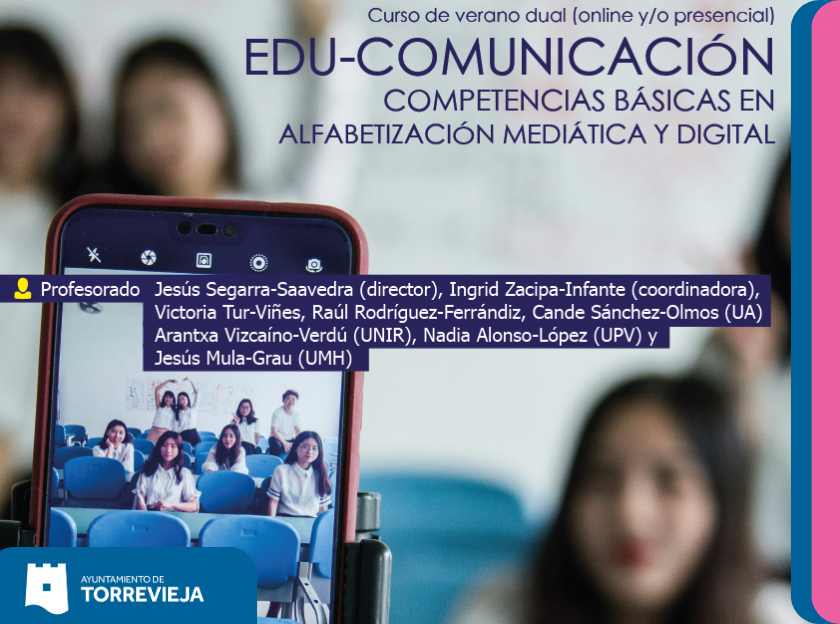The UA offers the summer course "Edu-communication: basic skills in media and digital literacy" in Torrevieja.

The University of Alicante (UA), as part of the Rafael Altamira summer courses, presents the course "Edu-communication: Basic Competencies in Media and Digital Literacy," an innovative training proposal that seeks to respond to the current challenges of media citizenship from a critical, inclusive, and applied perspective.
The course can be taken online and synchronously via Meet or in person at the UA Torrevieja headquarters, located on the second floor of the Virgen del Carmen Cultural Center. The course is offered from June 9th to 14th, from 4:00 PM to 8:00 PM (Monday to Friday), Fridays (10:00 AM to 2:00 PM), and Saturdays (10:00 AM to 12:00 PM).
The course fee is €65 for unemployed individuals or those linked to the UA (alumni, teaching and research staff, and PGTAS) and €90 for the general public. All course information is available at https://s.ua.es/es/F8Ny, and pre-registration can be completed at https://s.ua.es/_Mwk.
EDUCATION AND COMMUNICATION
Edu-communication is an interdisciplinary field of knowledge that integrates education and communication and seeks to train teachers, parents, candidates for competitive examinations, undergraduate students, and the general public in the proper use of media, social networks, and key educational tools to promote learning and social development.
This course is a UA initiative, and its main objective is to train professionals in the educational, communication, social, and cultural fields in key media and digital literacy skills through an active methodology based on action research, meaningful learning, and the creation of content, primarily educational. In fact, the course will teach, among other skills, how to create and distribute a podcast. Throughout its 25 teaching hours, which can be credited with 2.3 ECTS (elective or free credits), students will acquire essential tools for analyzing, creating, and evaluating media content, while promoting critical thinking, civic participation, and the ethical use of digital technologies.
The program is designed to address five main thematic axes , whose teachers are:
- Educommunication, digital citizenship and activism, by Victoria Tur-Viñes (UA).
- Media and digital literacy, by Ingrid Zacipa-Infante (UA).
- Critical navigation in digital media , by Raúl Rodríguez-Ferrándiz (UA).
- Creative and ethical production of content, by Jesús Segarra-Saavedra (UA), Arantxa
Vizcaíno-Verdú (UNIR) and Nadia Alonso-López (UPV).
- Critical evaluation of the media ecosystem , by Cande Sánchez-Olmos (UA) and Jesús
Mula-Grau (Information Newspaper and UMH).
The interdisciplinary and interuniversity teaching team is comprised of professors from the University of Alicante and other leading national institutions, such as the Polytechnic University of Valencia, the Miguel Hernández University, and the International University of La Rioja, as well as media professionals, enabling us to offer a rigorous, up-to-date, and professionally-projected training experience.
In a context of technological transformation and information overload, this course emphasizes the need to educate based on diversity, equity, and inclusion (DEI), training individuals capable of designing responsible strategies adapted to new media.